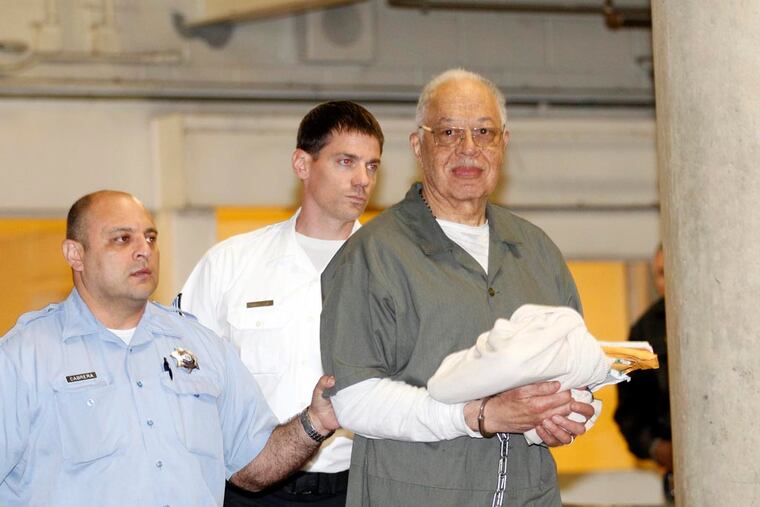How movies like ‘Unplanned’ and ‘Gosnell’ make money without movie critics
Some movies, like 'Unplanned' and 'Gosnell,' skip the critical process.

On Friday, President Donald Trump was scheduled to view the 2018 movie Gosnell: The Trial of America’s Biggest Serial Killer.
Gosnell didn’t screen in advance for movie critics. And it didn’t really need to. The movie, based on the 2013 conviction of Philadelphia abortion doctor Kermit Gosnell for the murder of three babies who a jury found were born alive during illegal late-term abortions, had a built-in fan base of 30,000 people who contributed to its Indiegogo campaign.
While it wasn’t crowdfunded like Gosnell, the anti-abortion film Unplanned courted the same audiences when it arrived in local theaters on March 29. Based on the memoir of Abby Johnson, a former Planned Parenthood clinic director who became an anti-abortion activist, the movie made $6 million in its opening weekend on 1,000 screens across the country. To put that in perspective, the Taraji P. Henson-starring Best of Enemies, which hit theaters last week, opened on 1,700 screens and made $4 million. A blockbuster, like an entry into the Avengers series, will open on more than 4,000 screens.
That’s a pretty good opening footprint for Unplanned, but it won’t surprise people who are plugged into social media groups that track the progress and release of such faith-based movies, circumventing traditional publicity channels. Gosnell, in addition to its crowdfunding campaign, was heavily marketed on social media before its release, and kept its audience interested with an email newsletter directly from the filmmakers. Faith-based groups and churches raise money for trips to screenings of Unplanned. For such groups, Unplanned is as big a movie event as Avengers: Endgame is for general audiences.
Unplanned received an R rating from the MPAA for graphic depictions of surgical and drug-induced abortion procedures, which makes it harder to market to religious groups. Some television networks deemed Unplanned to be political and turned away advertising on that basis, and Twitter suspended for one hour the Unplanned account after mistakenly linking it to banned accounts (Sen. Ted Cruz and Donald Trump Jr. came to the movie’s defense on their own Twitter accounts).
The movie rolled on, though, and expanded by more than 400 theaters in its second weekend, on its way to making $12.5 million so far.
It is sometimes determined by distributors that reviews are unnecessary and sometimes a hindrance to box office performance. And it’s not just faith-based movies that follow this strategy. Holmes & Watson, the Will Ferrell-John C. Reilly reunion that opened around last Christmas, avoided the critical gauntlet — probably for the best, as it has an 11% on review aggregation site Rotten Tomatoes. Tyler Perry is famous for excluding press from his Madea movies, and he’s none the worse for wear. Tyler Perry’s A Madea Family Funeral, reportedly the last Madea movie, has made $72 million domestically since it opened March 1.
But the majority of movies still actively court critical interest, including other faith-based movies. Breakthrough, a faith-based movie that opens Wednesday, April 17, and stars This Is Us’ Chrissy Metz, did screen for critics, although it conflicted with another screening and I could not attend.
Unplanned didn’t do that. Apart from some fleeting mentions in the trade papers, the film’s distributors gave critics no advance notice of the release. This week, I reached out to the Unplanned distributor to ask about why screenings weren’t offered to critics, but did not hear back as of this writing.
I attended a showing Thursday night at United Artists King of Prussia, where I was joined by about a dozen other patrons. It wasn’t media coverage that drew them to the showing. Jeff Harvey, who was there with his wife, Breanna, said he found out about the movie via social media and his church. “It’s pretty well known throughout the Christian community,” he said.
“It’s a powerful movie, I’m still kind of emotional about it,” said Breanna Harvey, who said she was surprised by the intensity of the R-rated content.
“Part of the reason we are here is, I think, Hollywood needs to know that is the kind of movie people do want to see,” Jeff Harvey said.
Susan McInerney, who attended the King of Prussia showing with her husband, John, said this was her second time seeing Unplanned; the first was with her daughter. What she said she particularly liked was the way it “drew a distinction between zealots and peaceful prayer warriors.”
Unplanned has received mixed reviews from critics. So did Gosnell, to which I eventually caught up. That movie — hamstrung by its tiny crowd-funded budget — struck me as a missed opportunity. There is enough substance there for a 10-part The Wire-esque deep dive touching on such issues as abortion, race, class, poverty, health care, and drug enforcement.
In the movie, a detective (Dean Cain) wonders why the case isn’t getting media attention. It certainly received attention locally. Kermit Gosnell, in fact, sued this news organization, specifically the Daily News, for “sensationalizing” his case. “The demeaning and monsterization has included front-page headlines, articles, editorials and even cartoons,” Gosnell claimed.
In his opinion, we’ve paid way too much attention.